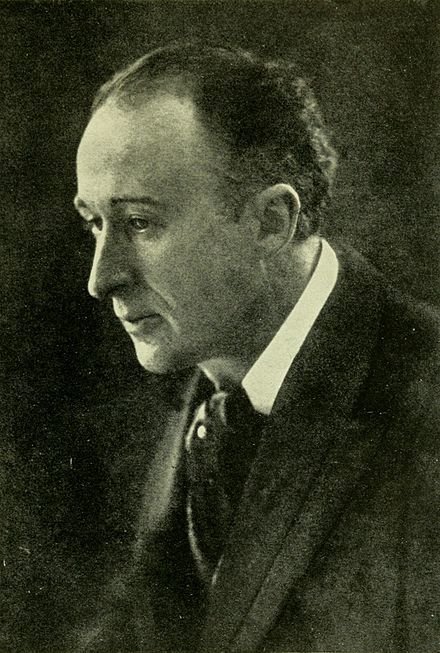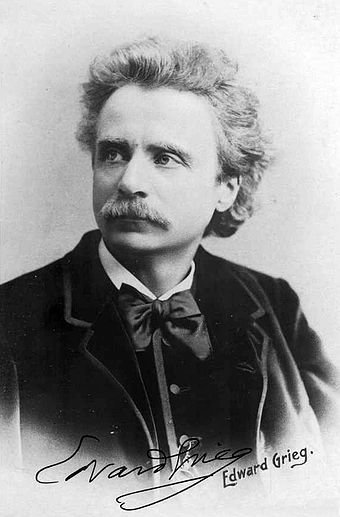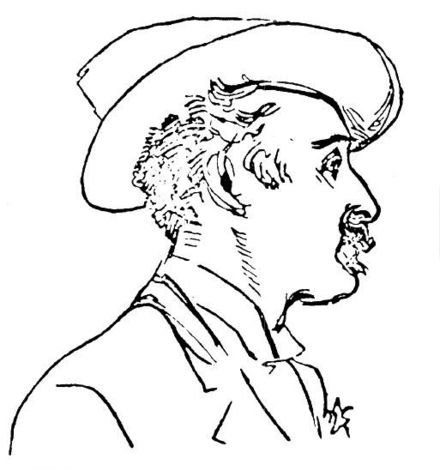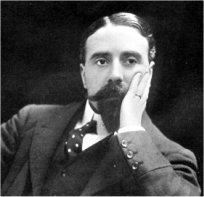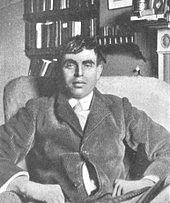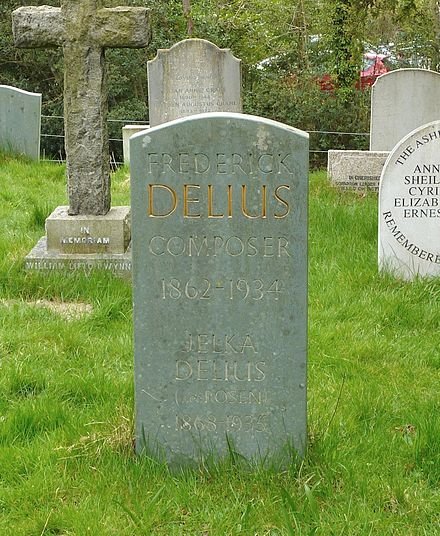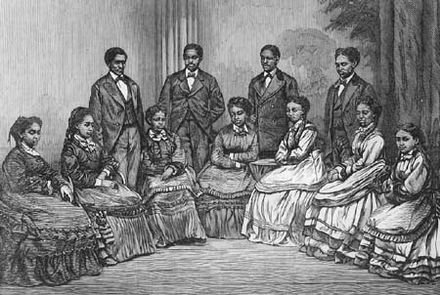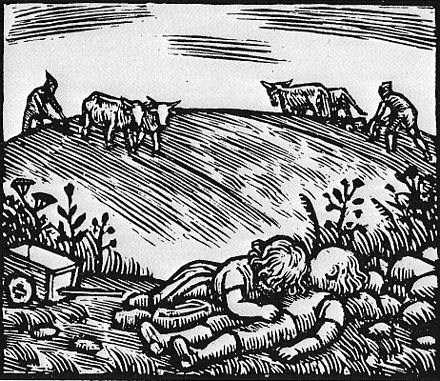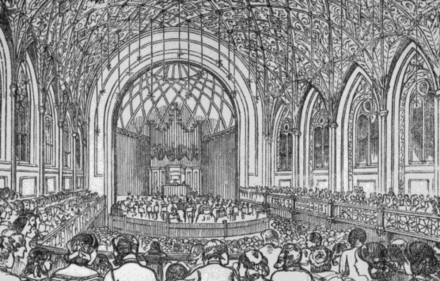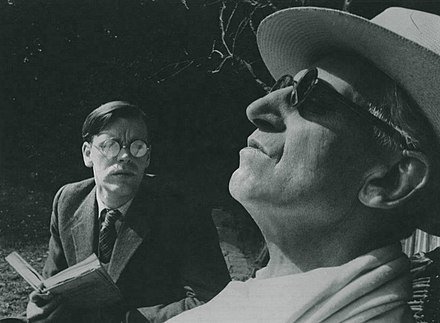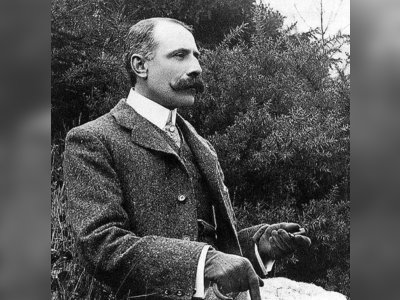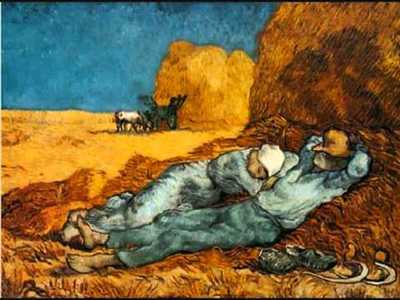British Heritage
Remember, Cherish, Learn.
beta
Frederick Delius Composer
Contribution of Frederick Delius to British Heritage.
Frederick "Fritz" Delius, the English composer, made a significant and enduring contribution to British heritage through his exceptional musical talents. Despite facing challenges in his life, including ill-health and being underrated during his early years, Delius persevered and left behind a rich and unique musical legacy. His compositions have become an integral part of the British cultural landscape, enriching the country's musical heritage with their lyrical beauty and distinctive orchestration.
Born on January 29, 1862, in Bradford, Yorkshire, Delius displayed a profound passion for music from a young age. Although his German heritage influenced him, he was drawn more to the music of Chopin and Grieg, demonstrating a preference for Romantic and Impressionistic styles. Delius received early musical training on the violin and later pursued formal musical studies in Germany.
After a brief period of managing an orange plantation in Florida, where he was influenced by African-American music, Delius embarked on a full-time career as a composer in Europe. His first successes came in Germany, where conductors like Hans Haym promoted his music. However, it wasn't until the intervention of Thomas Beecham in Britain that Delius's compositions gained recognition and popularity in his native country.
Beecham's dedication to Delius's music resulted in numerous successful performances and premieres of his works in Britain. Delius's music, characterized by its individual orchestration and use of chromatic harmony, gradually found appreciation among audiences. His pieces such as "Brigg Fair," "In a Summer Garden," "Summer Night on the River," and "On Hearing the First Cuckoo in Spring" became particularly beloved and synonymous with the essence of England.
Despite achieving popularity and critical acclaim, Delius faced personal struggles, including the contraction of syphilis during his early years in Paris. The disease eventually led to paralysis and blindness, limiting his ability to compose independently. However, with the help of his amanuensis, Eric Fenby, Delius managed to create some late compositions.
Delius's influence on British heritage extends beyond his music. He formed meaningful connections with notable artists and intellectuals of his time, including August Strindberg, Edvard Munch, and Paul Gauguin. Moreover, he fostered a lasting bond with his wife, Jelka Rosen, an esteemed painter who provided unwavering support throughout his life.
The legacy of Frederick Delius endures through his works and the efforts of The Delius Society, established in 1962 by devoted admirers, to promote knowledge of his life and music. Additionally, the society sponsors the annual Delius Prize competition for young musicians, ensuring that Delius's contributions to British heritage continue to be celebrated and cherished by future generations. The distinct charm and evocative power of Delius's compositions have secured him a prominent place in the pantheon of British composers, leaving an indelible mark on the country's musical heritage for all time.
Born on January 29, 1862, in Bradford, Yorkshire, Delius displayed a profound passion for music from a young age. Although his German heritage influenced him, he was drawn more to the music of Chopin and Grieg, demonstrating a preference for Romantic and Impressionistic styles. Delius received early musical training on the violin and later pursued formal musical studies in Germany.
After a brief period of managing an orange plantation in Florida, where he was influenced by African-American music, Delius embarked on a full-time career as a composer in Europe. His first successes came in Germany, where conductors like Hans Haym promoted his music. However, it wasn't until the intervention of Thomas Beecham in Britain that Delius's compositions gained recognition and popularity in his native country.
Beecham's dedication to Delius's music resulted in numerous successful performances and premieres of his works in Britain. Delius's music, characterized by its individual orchestration and use of chromatic harmony, gradually found appreciation among audiences. His pieces such as "Brigg Fair," "In a Summer Garden," "Summer Night on the River," and "On Hearing the First Cuckoo in Spring" became particularly beloved and synonymous with the essence of England.
Despite achieving popularity and critical acclaim, Delius faced personal struggles, including the contraction of syphilis during his early years in Paris. The disease eventually led to paralysis and blindness, limiting his ability to compose independently. However, with the help of his amanuensis, Eric Fenby, Delius managed to create some late compositions.
Delius's influence on British heritage extends beyond his music. He formed meaningful connections with notable artists and intellectuals of his time, including August Strindberg, Edvard Munch, and Paul Gauguin. Moreover, he fostered a lasting bond with his wife, Jelka Rosen, an esteemed painter who provided unwavering support throughout his life.
The legacy of Frederick Delius endures through his works and the efforts of The Delius Society, established in 1962 by devoted admirers, to promote knowledge of his life and music. Additionally, the society sponsors the annual Delius Prize competition for young musicians, ensuring that Delius's contributions to British heritage continue to be celebrated and cherished by future generations. The distinct charm and evocative power of Delius's compositions have secured him a prominent place in the pantheon of British composers, leaving an indelible mark on the country's musical heritage for all time.
- Frederick Deliusen.wikipedia.org

